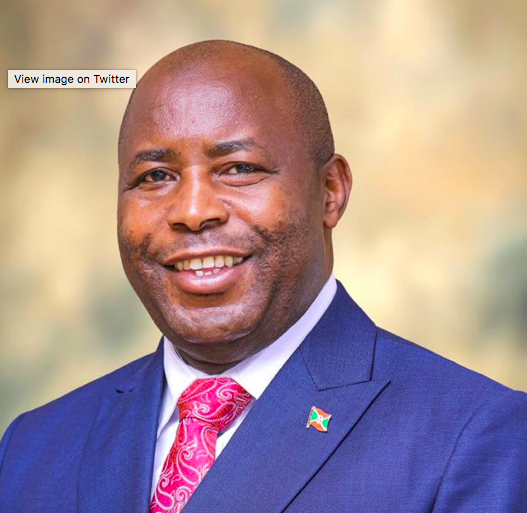Burundi has a new president in the person of Evariste Ndayishimiye who won May 20 elections as the country entered the post-Nkurunziza era.
Ndayimishiye was originally supposed to take over in August but the Constitutional Court ruled that the investiture be brought forward following the death of outgoing Nkurunziza.
The event took place at the state Ingoma in Gitega, the political capital of the country. The venue was packed as the president took his oath and went through the motions of accepting his official instruments of office.
The presidency, Ntare Rushtashi House, has been streaming the event on its YouTube Page. The event was largely attended by diplomats given the restrictions on travel due to the COVID-19 pandemic.
Quick facts about the new Burundian president
- He was born in 1968 in Gitega province, the current political capital of Burundi.
- The 52-year-old Evariste Ndayishimiye succeeds Pierre Nkurunziza who died on June 8.
- He was among top generals of the country since Nkurunziza took power in 2005.
- He is popularly known in Burundi as Neva – believed to be combination of his names – “N” for Ndayishimiye and “eva” for Evariste.
- Ndayishimiye was a law student when the civil war erupted in 1993
- Like Nkurunziza, he reportedly survived an assassination plot before fleeing into exile. He subsequently supported and closely worked with Nkurunziza during the Arusha peace talks between the government and the FDD rebels.
- Following the 2003 peace accord, Ndayishimiye deputised the then army chief of Burundi, at a time Nkurunziza took interior ministry.
- He served as minister of the interior under Nkurunziza before he was appointed to be the military advisor to the president.
- Politically, he has served as secretary-general of the ruling party (CNDD–FDD) until January 2020 when he was appointed flag bearer of the party.
Mr Ndayishimiye, a father of six, is known as a practising roman catholic, who also embraces the ideology of his predecessor of “emphasising on God” in politics. The new president is taking over a country that is diplomatically isolated and which no good relations with donors.
His predecessor was accused of presiding over a government that carried out grave human rights violations and a crackdown on the opposition, journalists and activists. He also downplayed the coronavirus pandemic, a BBC report added.
africanews

